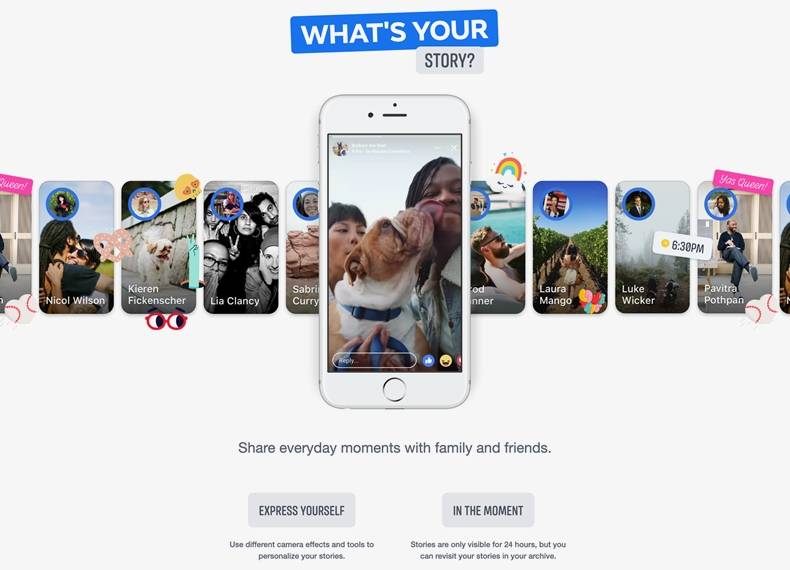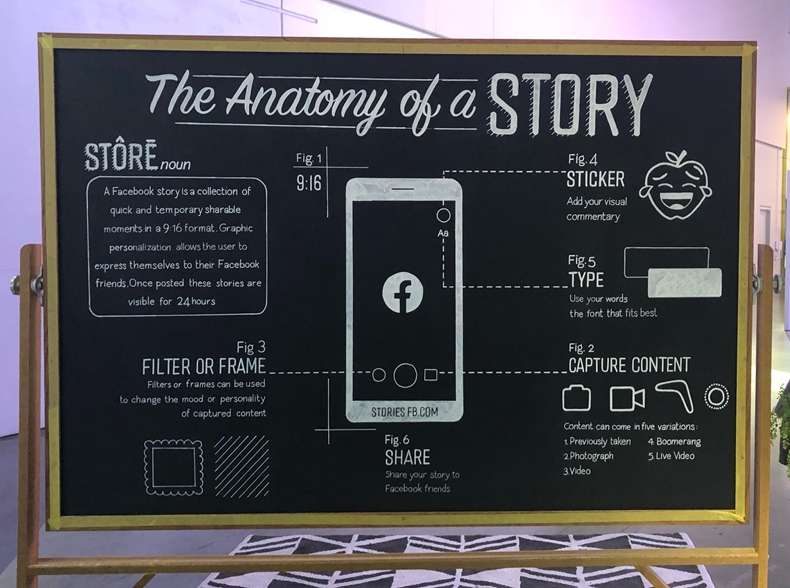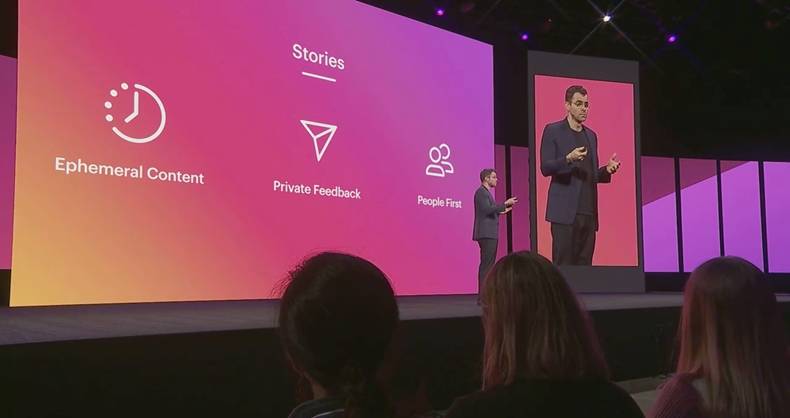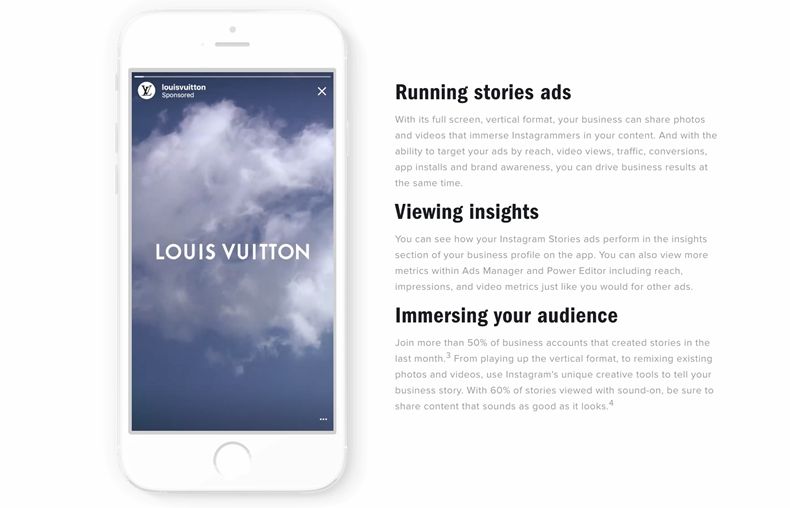Stories were one of the heroes of Facebook's F8 2019. If this surprises you, then you should definitely read on.
More than 1 billion Stories are shared every day across the Facebook family of apps: Facebook, Instagram, and (under the name Status) WhatsApp. In fact, the growth and the potential of the Stories format is so immense, that its long-term potential impact on social media could rival that of Faceboook's News Feed.

Image via Facebook
That raises three burning questions, which we'll answer in this article: What is this relatively new format everyone is talking about? Why should your brand care about it? And, most important, how can you take advantage of it to grow your business?
First Things First: What Is a Story?
A Story is a mobile content format—vertical orientation, 9:16 aspect ratio—that is visible for 24 hours once posted.
You can create a Story from different media assets: an existing photo or video from your phone library, a new photo or video taken with your phone camera, a clip made with the Boomerang app, or even a livestream.
You can then add filters, frames, stickers, and text to liven it up. Individuals and brands can share Stories organically or leverage the power of Stories Ads to expand their reach.

Image via Loomly
Why Should Brands Care About Stories?
With a full-screen, distraction-free, and immersive format (which is rare on mobile), Stories—and Stories Ads—allow marketing teams to inspire their audiences to take gesture-based actions (swipe up) and trigger direct-response outcomes.
Coupled with the power of Facebook's targeting, audience reach, and measurement solutions, Stories is new, virgin territory with endless possibilities.

Image via Facebook
Numbers provided by Facebook during F8 2019 only confirm the scale of the opportunity:
- 56% of people say they use Stories on three or more platforms at least once a week, and 57% agree that Stories make them feel part of a larger community.
- 1 in 2 people surveyed say they have visited a website—and 31% have gone to a store—to buy a product/service as a result of having seen it in Stories.
- 60% of businesses on Instagram Stories use an interactive element every month.
How to Create Effective Stories and Stories Ads

Image via Instagram
Here are some insights and recommendations provided by Facebook itself at F8 2019 during a session titled "Spotlight on Stories: Creative Considerations for Effective Stories Ads":
- Creative can make or break your campaign. Pick high-resolution assets, and produce pixel-perfect montages, because 56% of a brand's sales lift can be attributed to the quality of the creative.
- Speed is key. Stories are inherently an immersive and interactive content format. Capitalizing on quick, dynamic content allows brands to meet users' expectations and sustain their attention.
- Split Stories into scenes. Break down your narrative arc into a succession of small back-to-back scenes to keep users interested. Think "burst mode" rather than "long take."
- Take advantage of the vertical format. Keeping in mind that 82.5% of visitors to video-centric websites hold their smartphone in portrait orientation, crafting content specifically in a vertical format is definitely worth the effort to make the most of the screen real estate available.
- Limit stickers. When using stickers in Stories, more is not better. It's best to use only contextual stickers that enhance the experience and avoid incessant use and unnecessary stickers.
- Open and close with your brand. Integrate brand elements in the first and last few seconds of your Story to help users identify from whom your message is coming. Doing this can be as simple as using your logo in a pre-roll splash screen.
- Draw attention to a CTA. To maximize outcomes, you do not want to be shy about encouraging them to swipe up. The more explicit you are, the higher your chances to trigger the response you want from your audience.
- Test and learn. As noted earlier, 50% of users report they have visited a website to buy a product or service first seen in a Story. In other words, Stories are a great traffic acquisition channel. If you are not yet seeing the results you expect, it's definitely worth iterating over time to understand which stimuli your audience best responds to. If you are already killing it with Stories, you may want to keep experimenting to push the envelope even more.
You can also learn more tricks to bring your stories to life in this instruction-led session recorded during F8 2019.
In a Nutshell
Stories are fresh. Stories are huge. Stories are here to stay. Brands that invest in this trend today will reap the rewards tomorrow.




